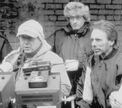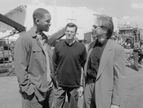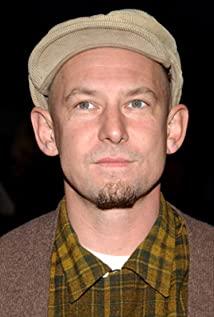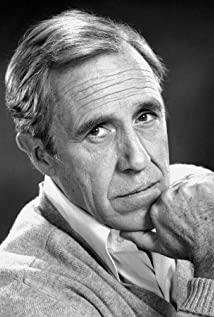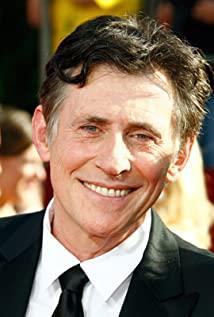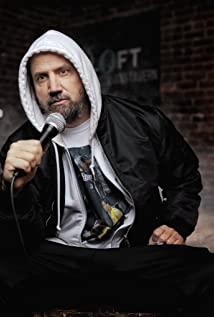Incidentally, I will illustrate this issue in conjunction with the "Guan Shuo" section that has recently emerged in Taiwan. Ke Jianming and Wang Jinping's relationship was obtained by the special investigation team using surveillance methods that were not legally approved by the court, and reported directly to Ma Ying-jeou by bypassing the "Ministry of Justice" and the "Executive Yuan" in violation of the Constitution. According to people like me, it should be very pleasing to expose such abuse of power and favoritism, but Taiwanese people don't see it that way, which is reflected in the support rate of the old horse, which is half lower than Chen Shui-bian's lowest 18%. It's so weird! Actually, not really, let me elaborate. Executive power must not interfere with judicial power, and there are court constraints when exercising powers that may violate human rights. For example, the use of surveillance is strictly limited, and judicial surveillance can only be used for criminal offenses that may be sentenced to more than 3 years in prison. , a wiretapping order is reviewed and approved by a judge for a maximum period of 30 days. If public authorities are allowed to abuse surveillance methods, everyone is at risk of being exposed to privacy. Applying the "fruit of the poisonous tree" principle established by the U.S. court, evidence obtained through non-legal means cannot be used as the basis for the verdict and should be excluded. The Taiwanese people just knew this section was powerful, not only did not buy the account of what was revealed, but instead questioned why the public power violated personal privacy so unscrupulously. It is better not to have individual justice within the flaws of the power structure, but also to ensure that public power can stay there honestly, and not to step forward to private power.
"Justice is not only to be done, but to be seen," said Lord Denning. The same is true for the exercise of public power. Only transparent operation within the institutional framework can ensure its normal and orderly exercise. Once the power is not supervised and restrained, it will act arbitrarily like a beast that has escaped its cage. The congressmen in the film will take revenge on dissidents by abusing the power of monitoring. The law is to set the bottom line of morality according to the idea of human evil, and imagine everyone as a person who is at risk of breaking the law, instead of considering how a good person behaves. In the film, Smith's wife asks such a question, "Go monitor the bad guys, don't monitor the good guys, then who decides who is the good guy?" When friends talk about lawyers, they always look like speculators who want to sway the law and speak for the bad guys. face. No one can be convicted without a court judgment. A person is only a criminal suspect before being judged by a court, that is, an innocent person, an ordinary citizen like you and me. If the person does kill someone, but cannot prove his guilt from a legal point of view, he is legally innocent. For example, Simpson, the "bad guy" who the whole world thinks he is a murderer, even his lawyer Sapiro thinks this guy is a murderer, but the court finally ruled that Simpson was not guilty, then he was an "innocent" person. Judges decide who is good and who is bad. When a bad person is to be discovered, who will determine who is likely to become a bad person? This goes back to the choice between obtaining intelligence in the face of national security and the freedom and safety of the people. In the film, Will Smith was framed for cheating, criminal involvement, establishment of a leather bag company, and murder (intentional homicide in our country), which in the eyes of the public and even his wife considered him a "bad guy". It is precisely because the private rights of individuals are so fragile in the face of powerful public power that strict restrictions should be imposed on the exercise of public power, especially when private rights are violated. The monitoring and tracking technology in the film makes people sigh that there is nowhere to escape in the age of technology, and there is no privacy at all. Will Smith asked, "Why did you blow up the building?" Answered, "Because you made a phone call!" It seems that Exaggerated plots, when listening to abuse, really affect our lives, everyone is in awe in daily life, for fear of being convicted of words in a terrifying atmosphere.
Of course, at the end of the film is the heroic redemption of the United States. The "bad guys" are fighting each other, and the "bad guys" are not punished by the law in the end, but die under the original revenge of shooting each other. It also reminds me of the exposure of Shanghai judges collectively soliciting prostitutes, which is also a successful example of private relief. Whether it is a movie or reality, it reflects such a sadness, that is, when faced with the invasion of public power, it can only be rescued through private resources, while the people in our country are reflected in the petition that goes straight to Tianting and stops the sedan chair. Said to be the sadness of the modern rule of law.
(Originally published on my Sina Weibo 2013-9-21 20:40)
View more about Enemy of the State reviews




